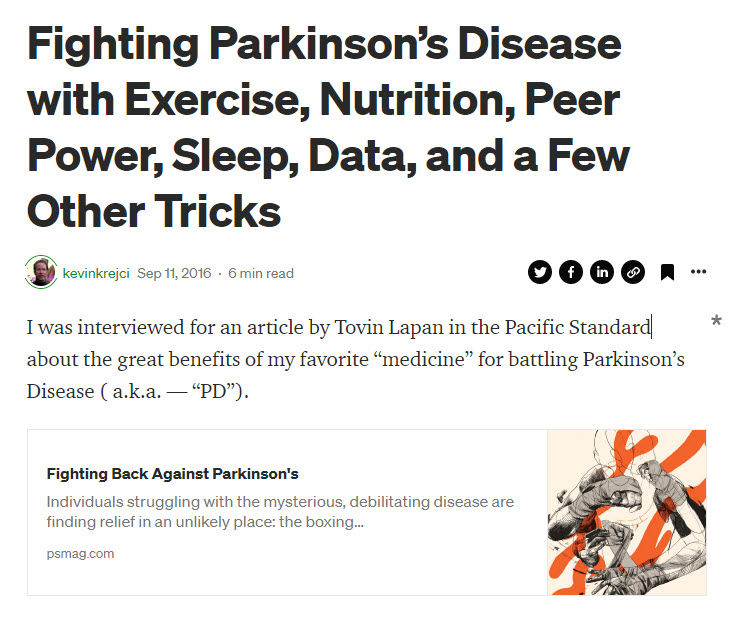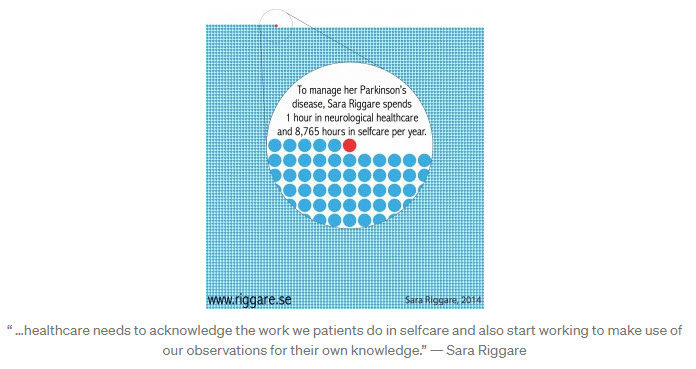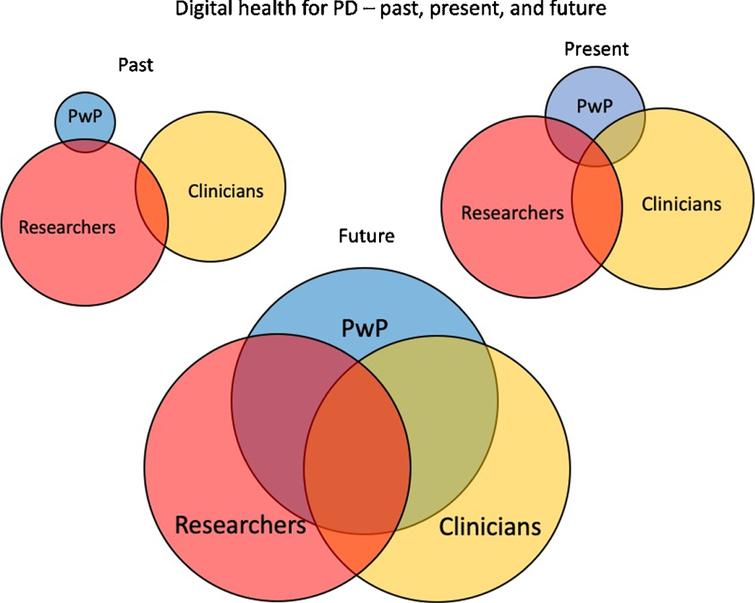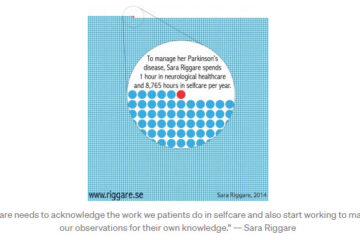Personal digital health in Parkinson’s disease: Case histories and commentary
Kevin Krejci, Parkython volunteer and author of this post, was the subject of a research paper published recently in Sage Journals, titled “Personal digital health in Parkinson’s disease: Case histories and commentary“. Other subjects included friend of Parkython and fellow WPC Ambassador, Sara Riggare. The paper depicts our accounts of self-tracking and uses of digital health in Parkinson’s Disease.



Conclusion of This Paper
The unique nature of PD has made it an ideal clinical space for the use of digital health. David Walden’s case was an early example of how personal digital health could improve the health outcomes of those with PD. Kevin Krejci’s case reflects the move towards automation of tracking and how the field is decreasing the burden of tracking. Presently, Sara Riggare is researching the process of PD self-experimentation in which she highlights the fact that the movement is becoming more sophisticated and targeted in terms of what data is being generated, which in turn produces findings with increasingly valuable insights.13 It is reasonable to suspect that as more meaningful insights are created and more technological advances occur, self-tracked findings may be used in clinical settings more often and potentially guide physicians and patients alike in making more informed care decisions.
Finally, the potential impact of self-tracking and self-experimentation practices in scientific inquiries in the digital health domain is great. This arena requires patient input and personal digital health efforts, especially in the case of patients with PD, who inherently have the engagement needed to ensure patient input and compliance to their own protocols. The combination of these features may produce both collective scientific inquiry and enhanced medical care for patients. We respect and value the efforts of self-trackers like those chronicled in this article and we encourage researchers and patients alike with PD and other diseases that carry the potential for self-inquiry to consider these practices and develop in their own studies.



0 Comments